15 Simple Ways to Save Money on Your Water Bill (Updated in 2025)
-
Kristin Hitchcock
- Last updated:
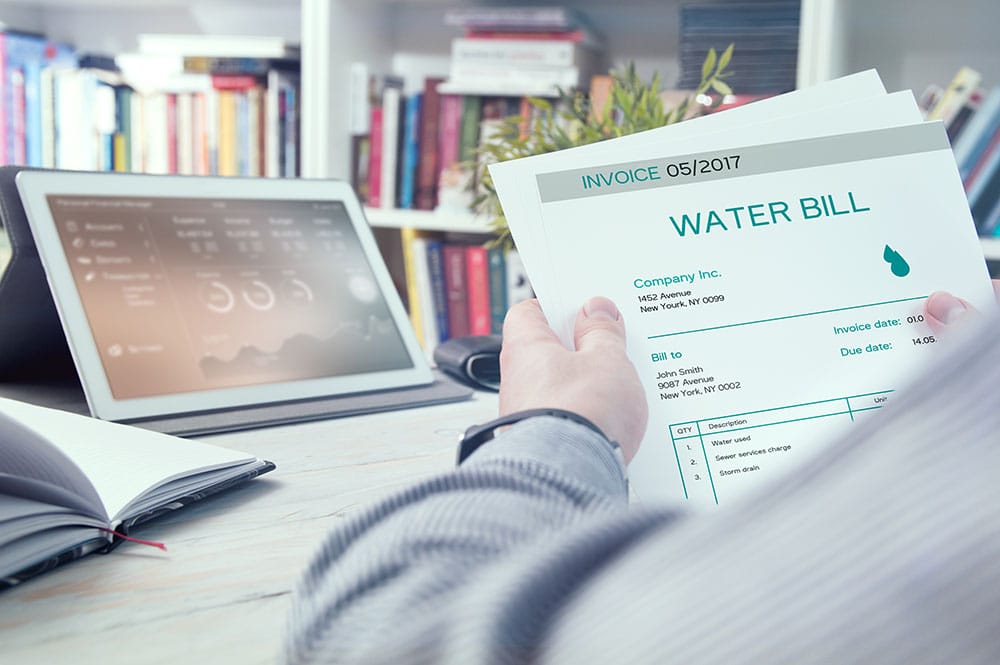
Living in a home can get quite expensive. Not only do you have to account for rent or a mortgage, property taxes, and maintenance, but you also have to consider your water bill. Usually, water isn’t terribly expensive in most areas. However, it can add up. We use a lot of water every day to live—more than most of us realize.
Luckily, it isn’t difficult to reduce your water usage and your bill in the process. Typically, a few shifts in your routine can make a pretty big difference.
The 15 Simple Ways to Save Money on Your Water Bill
1. Purchase More Efficient Appliances
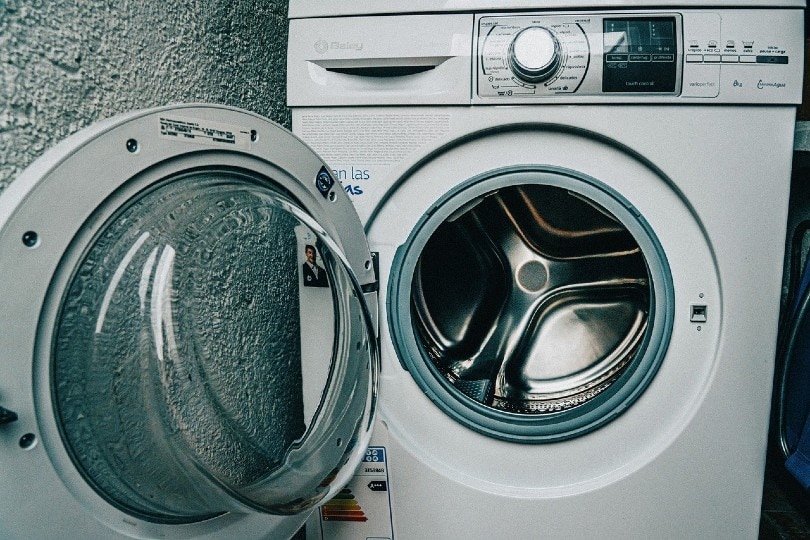
You should purchase more efficient appliances if you have the capital to do so. Most of our water usage comes from appliances like washers. Therefore, by replacing them with more efficient models, you can save gallons of water a month.
Most efficient appliances are marked with Energy Star or WaterSense seals. This means that the machine runs on at least 50% less water or energy than your average appliance. Because these machines often use gallons of water every time you turn them on, this can save you a lot of money.
You should also purchase a front-loading washer, as they use much less water than a top-loading model.
2. Only Run Full Loads
This may seem like an obvious way to save water. However, it can easily be overlooked if you’re in a hurry. No matter what appliances we’re discussing, you should only run full loads. Running a dishwasher half-full means that you’re using twice the water.
Running a dishwasher is also more efficient than washing by hand. Therefore, opt to use a dishwasher when possible (feel free to use this as an excuse next time you do the dishes).
3. Purchase New Faucets
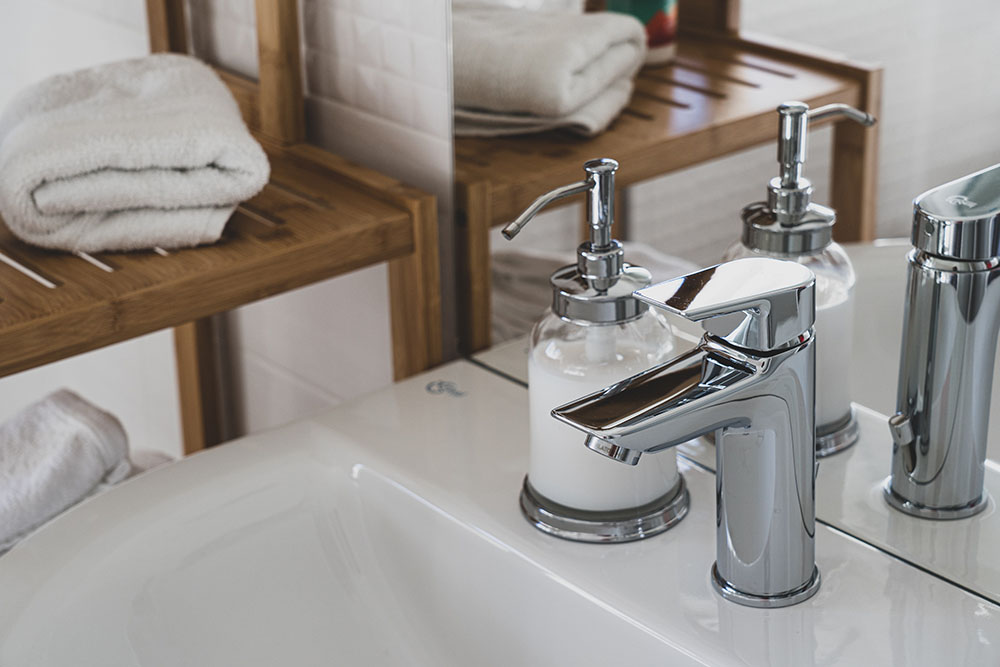
Believe it or not, faucets can be efficient or inefficient when it comes to water. While we all know that you should turn off the tap when you aren’t using it, you can also conserve water while the tap is running if you have the right faucet.
Look for faucets that are WaterSense-certified. You can also install an aerator on a faucet you already own, which will make it more efficient by up to 30%.
4. Skip the Rinse
When we’re talking about washers, you should always wait until it is full to run a load, of course. However, you should also skip the rinse cycle when possible. This cycle typically uses around 5 gallons of water, so you can save a lot in the long run. In most cases, you don’t need the extra rinse cycle, either.
If you find that there is still detergent on your clothes, it may be that you’re using too much laundry detergent. Often, people use far more detergent than they actually need, so consider cutting back.
5. Fix Any Leaks
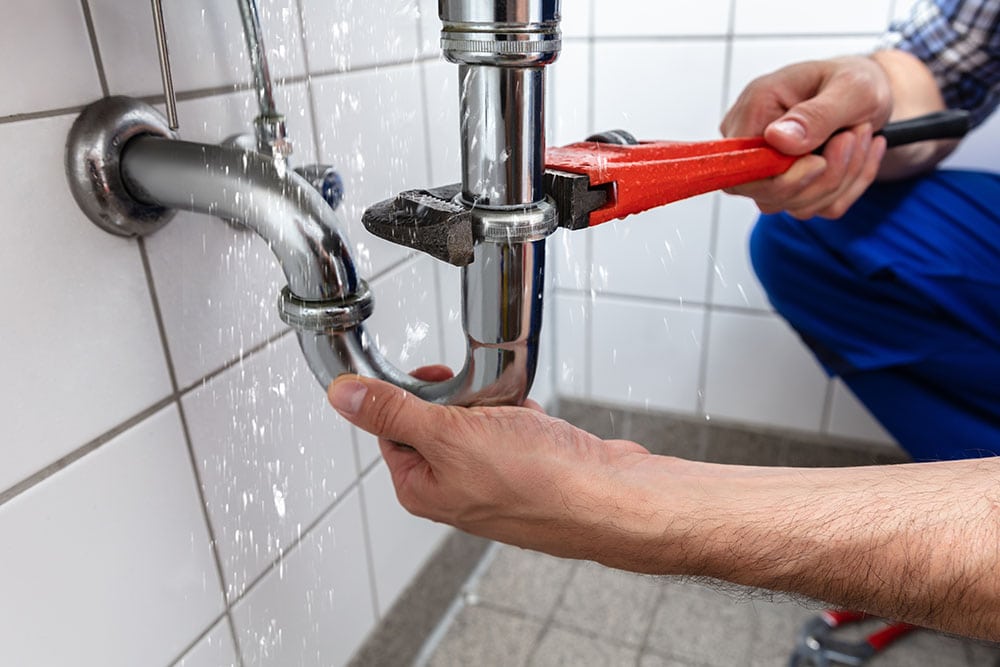
Leaks can be a huge source of wasted water, even if they are very small. Therefore, you should always investigate leaks and fix them. While this may cost you a bit of money upfront, it will reduce your costs over time by saving water. Plus, it’s simply better for the environment.
When in doubt, we highly recommend considering hiring a professional to determine if there is a leak.
6. Don’t Use Garbage Disposals
You should hold off using your garbage disposal as long as possible. These machines require a lot of water to use properly and they can easily run up your water bill. It is much more efficient to compost the items you can and only use the disposal when you absolutely have to.
If you use the disposal at every meal, you can potentially save gallons of water a day by simply starting a compost pile.
7. Turn Your Shower Off
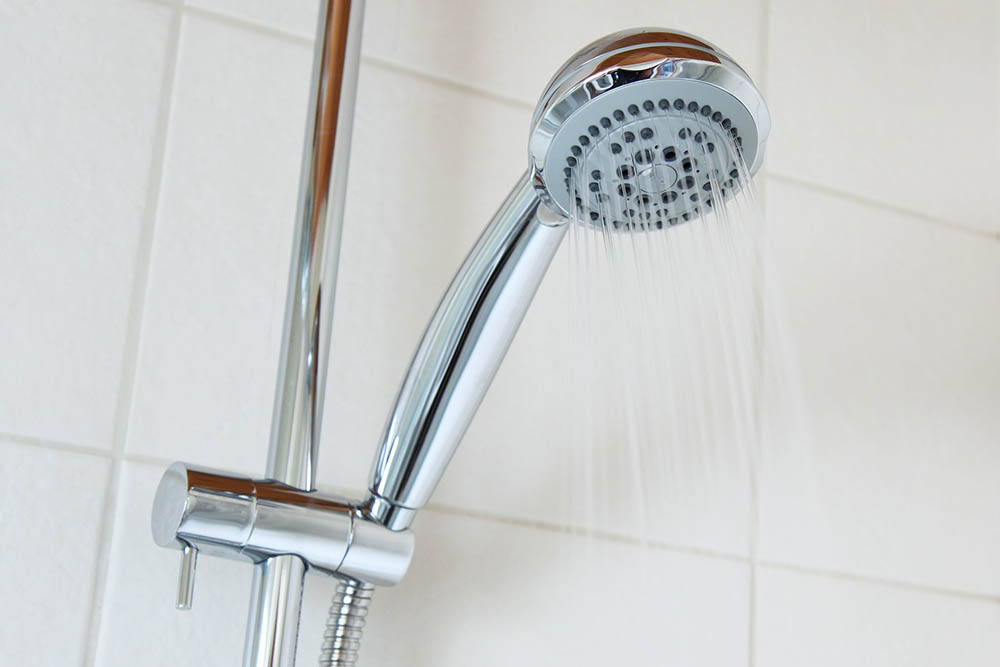
When you don’t need the shower water you can save money by turning it off. Then, when you need to rinse, simply turn it back on. While this extra step may seem a bit redundant, it can potentially save you a lot of money on water over the years. Showers take a lot of water to run, and most of us aren’t even standing under that water most of the time.
Plus, this will save the water in your hot water heater, which will prevent upsets in the morning!
8. Collect the Rain
Rain is free water. Therefore, you can collect it to save money on your water bill. Of course, you shouldn’t necessarily use this water for drinking, as it won’t be purified. However, it can be used to water your plants and yard without paying any extra for it.
They may water barrels that you attach to your home’s downspout. This allows you to collect the water that falls on your roof, which is quite a lot in most areas.
9. Grab a Broom
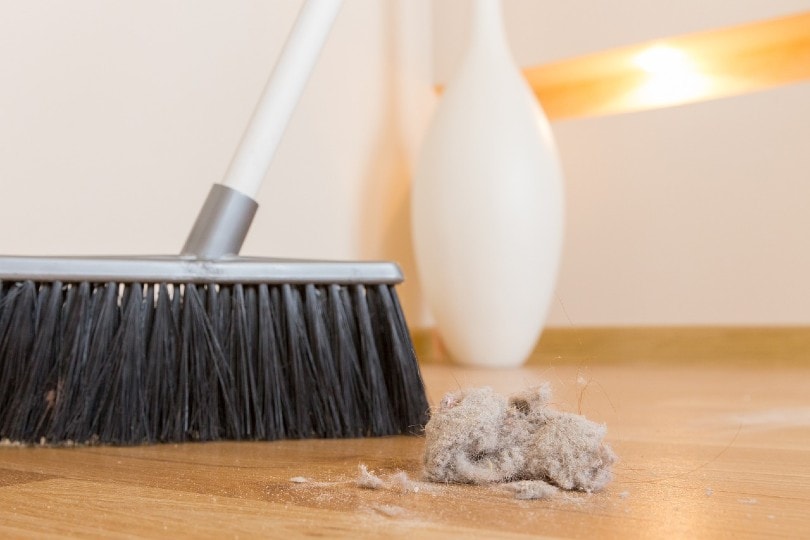
When many of us spray off sidewalks and driveways, it may reduce your water bill if you sweep them instead. As you might imagine, this takes a bit more work on our part. However, if you’re really set on using less water, this is an easy way to save gallons.
Cleaning your outside area with a hose can use as much as 50 gallons each time. If you do this once a week, that’s 200 gallons per month. A broom can save you a lot of water in this case.
10. Reuse Water
We’ve heard about reusing trash and containers. However, you can also reuse water in some cases. For instance, don’t simply pour out the pet’s water or leftover water in a pot. Instead, use it to water your plants. You should be wary about reusing water for drinking purposes, of course, as it may no longer be sterile. However, your plants won’t mind.
You can also reuse water for cleaning outdoors and similar solutions.
11. Choose Your Plants Wisely
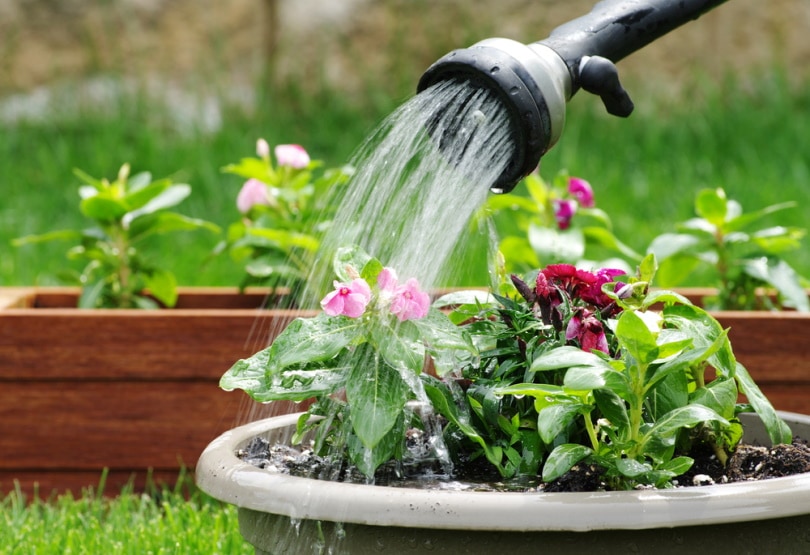
Non-native plants that aren’t drought resistant can use up gallons and gallons of water each year. Instead of choosing popular plants that guzzle water, choose drought-resistant options that don’t need water every day. Often, it is easiest to choose plants that grow in your area, as they are likely adapted to your climate and may not need extra water.
Native plants require both less time and fewer resources. Therefore, they are simply the better option in most circumstances.
12. Secure the Pool
If you have a pool, you probably use a lot more water than the average person. Securing your pool can help prevent evaporation, which will reduce the amount of water required to fill it up. Plus, securing a pool makes it much safer and may reduce maintenance costs.
Of course, a cover costs money and is often considered “optional.” However, if you’re serious about safety and saving water, we highly recommend considering this accessory.
13. Keep a Bushy Yard
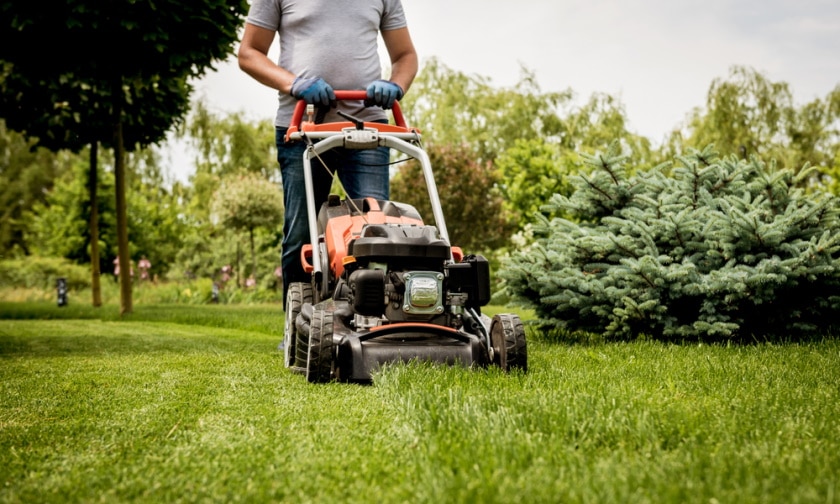
While we don’t advocate for not mowing at all, we do recommend that you adjust your mower height to two inches or more. You don’t want to scalp your yard, especially in the summer. Plus, tall grass helps shade the soil and prevents evaporation. Therefore, you’ll find that your yard stays greener and requires watering less frequently.
You can add lawn clipping behind to help hold in the moisture even more. Plus, adding mulch and similar items can also improve water retention.
14. Use a Water Pitcher
Instead of flipping on the sink every time you want a glass of water, store some water in a pitcher in the fridge. Therefore, you won’t be wasting water while you wait for it to chill. Plus, because water will be more accessible, you may find yourself drinking more water, as well.
If you want to take things a step further, use a water pitcher with a filter attachment.
15. Install a Low-Flower Shower Head

If you aren’t interested in turning off your water while showering, you may want to consider installing a low-flow water head. This small adjustment can reduce your water usage by about 50%. In the long run, this can save you tons of water, especially since showers use so many gallons.
Conclusion
There are many small steps you can take to reduce your water usage. If you aren’t interested in changing your habits, you can instead purchase different appliances and install water-saving devices around your home. These devices will save you water without you needing to do anything different.
However, for those that are willing to change their habits, you can save even more water. Using a water barrel to water your plants or adjusting the height of your grass can save you gallons of water per year. You can also do simple adjustments like taking shorter showers or turning off the extra rinse cycle on your washing machine.
Featured Image Credit: Daniel Krason, Shutterstock
Contents

